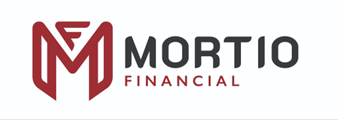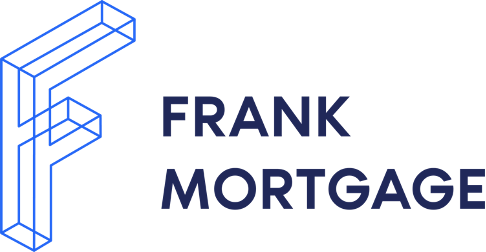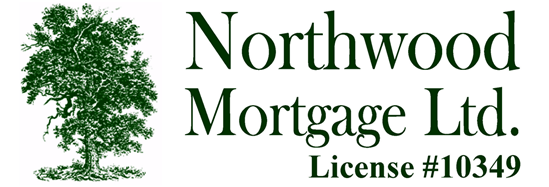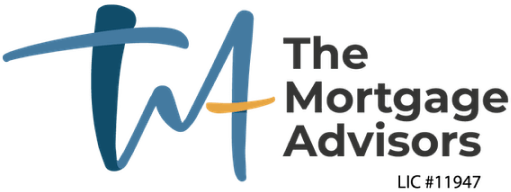See the Current Mortgage Rates in Oshawa
Get the lowest mortgage rate today.
Today's Best Mortgage Rates in Oshawa, Ontario
Evaluate Oshawa’s best mortgage rates in one place. You can compare the most current mortgage rates and monthly payments from 175+ banks and lenders across Ontario.
Rates are based on an average mortgage of $500,000 and subject to change based on filter criteria.
| Lender
|
Insured
|
Insurable
|
Uninsured
|
|---|---|---|---|
|
Mortio Financial Corp
|
3.99%
$2,627.39 / month
|
4.24%
$2,695.56 / month
|
4.14%
$2,668.19 / month
|
|
Frank Mortgage
|
4.09%
$2,654.55 / month
|
4.19%
$2,681.85 / month
|
4.09%
$2,654.55 / month
|
|
Northwood Mortgage Ltd.
|
4.14%
$2,668.19 / month
|
4.24%
$2,695.56 / month
|
4.24%
$2,695.56 / month
|
|
Mortgage Outlet - Russel Inspektor
|
4.29%
$2,709.29 / month
|
4.29%
$2,709.29 / month
|
4.29%
$2,709.29 / month
|
|
Innovation Federal Credit Union
|
4.39%
$2,736.87 / month
|
4.39%
$2,736.87 / month
|
4.39%
$2,736.87 / month
|
|
True North Mortgage
|
2.99%
$2,363.66 / month
|
2.99%
$2,363.66 / month
|
2.99%
$2,363.66 / month
|
|
The Mortgage Advisors
|
3.87%
$2,594.98 / month
|
3.87%
$2,594.98 / month
|
3.87%
$2,594.98 / month
|
|
Nesto
|
3.91%
$2,605.76 / month
|
3.91%
$2,605.76 / month
|
3.91%
$2,605.76 / month
|
|
MortgagestoGo
|
3.94%
$2,613.86 / month
|
3.94%
$2,613.86 / month
|
3.94%
$2,613.86 / month
|
|
Hypotheca
|
3.94%
$2,613.86 / month
|
3.94%
$2,613.86 / month
|
3.94%
$2,613.86 / month
|
|
One Link Mortgage & Financial
|
3.95%
$2,616.57 / month
|
3.95%
$2,616.57 / month
|
3.95%
$2,616.57 / month
|
|
Northern Birch Credit Union
|
3.99%
$2,627.39 / month
|
3.99%
$2,627.39 / month
|
3.99%
$2,627.39 / month
|
|
The Police Credit Union
|
3.99%
$2,627.39 / month
|
3.99%
$2,627.39 / month
|
3.99%
$2,627.39 / month
|
|
Monster Mortgage
|
3.99%
$2,627.39 / month
|
3.99%
$2,627.39 / month
|
3.99%
$2,627.39 / month
|
|
City Wide Financial Corp
|
3.99%
$2,627.39 / month
|
3.99%
$2,627.39 / month
|
3.99%
$2,627.39 / month
|
|
Sudbury Credit Union
|
3.99%
$2,627.39 / month
|
3.99%
$2,627.39 / month
|
3.99%
$2,627.39 / month
|
|
Mainstreet Credit Union
|
3.99%
$2,627.39 / month
|
3.99%
$2,627.39 / month
|
3.99%
$2,627.39 / month
|
|
East Coast Mortgage Brokers
|
4%
$2,630.10 / month
|
4%
$2,630.10 / month
|
4%
$2,630.10 / month
|
|
Prospera Credit Union
|
4.04%
$2,640.95 / month
|
4.04%
$2,640.95 / month
|
4.04%
$2,640.95 / month
|
Today's Best Mortgage Rates in Oshawa
Evaluate all of Oshawa's best mortgage rates in one place. Rates.cas Rate Matrix lets you compare pricing for all key mortgage types and terms.
Rates are based on an average mortgage of $500,000 and subject to change based on filter criteria.
Updated 18:20 on Jul 25, 2025| Placeholder |
Insured
The rates in this column apply to borrowers who have purchased mortgage default insurance.
This is required when you purchase a home with less than a 20% down payment.
The home must be owner-occupied and the amortization must be 25 years or less.
|
80% LTV
The rates in this column apply to mortgage amounts between 65.01% and 80% of the property value. The home must be owner-occupied and have an amortization of 25 years or less. You must have purchased it for less than $1 million. These rates are not available on refinances. Refinances require "Uninsured" rates.
|
65% LTV
The rates in this column apply to mortgage amounts that are 65% of the property value or less. The home must be owner-occupied and have an amortization of 25 years or less. You must have purchased it for less than $1 million. These rates are not available on refinances. Refinances require "Uninsured" rates.
|
Uninsured
The rates in this column apply to purchases over $1 million, refinances and amortizations over 25 years. More info on the differences between insured and uninsured rates.
|
Bank Rate
Bank Rate is the mortgage interest rate posted by the big banks in Canada.
|
|---|---|---|---|---|---|
| 1-year fixed rate | 4.84% | 4.79% | 4.79% | 5.59% |
5.49%
|
| 2-years fixed rate | 4.04% | 4.34% | 4.34% | 4.39% |
4.79%
|
| 3-years fixed rate | 3.87% | 4.09% | 4.09% | 4.24% |
4.29%
|
| 4-years fixed rate | 4.09% | 4.15% | 4.15% | 4.44% |
4.39%
|
| 5-years fixed rate | 3.91% | 3.89% | 3.89% | 3.91% |
4.09%
|
| 7-years fixed rate | 5.19% | 5.00% | 5.00% | 5.19% |
5.00%
|
| 10-years fixed rate | 5.24% | 5.24% | 5.24% | 5.29% |
6.09%
|
| 3-years variable rate | 4.40% | 4.30% | 4.30% | 4.40% |
6.35%
|
| 5-years variable rate | 4.04% | 4.04% | 4.04% | 4.05% |
4.25%
|
| HELOC rate | N/A | N/A | N/A | N/A |
N/A
|
| Stress Test | 5.25% | 5.25% | 5.25% | 5.25% |
N/A
|
Oshawa, Ontario’s mortgage rates
As the largest province with the most competitive mortgage market in the country, Ontario has Canada's most competitive mortgage market, resulting in lower interest rates.
Historically, Ontario has had the most mortgage professionals and lenders in the country.
Competition breeds price advantages in most cases and the number of licensed agents increased 17% year-over-year by mid-2021, bringing the total number of licensed mortgage brokers and agents to 2,749 and 13,179, according to the Financial Services Regulatory Association of Ontario.
To put it into further perspective: Mortgage Professionals Canada says its membership consists of 15,000 licensed mortgage professionals and 1,000 firms nationwide.
Average mortgage payments in Oshawa
Average mortgage rates have been on the rise nationally and in the Oshawa area. In Canada, the average scheduled monthly payments for new mortgage loans in Canada was $1,984 in Q1 2023, compared with $1,594 in Q1, 2022, just a year ago.
In Ontario, the average scheduled monthly payment for new mortgage loan was recorded at $2,494 in Q1 2023, compared with $1,897 in Q1, 2022.
In Oshawa, the average scheduled monthly payment for new mortgage loan was $2,492 in Q1 2023 compared with $1,953 in Q1 2022
Again, higher borrowing costs have contributed to the increase. The Bank of Canada's increase in overnight rate right times in 2022 that led lenders to increase their prime rates, has contributed significantly towards this increase in average scheduled monthly mortgage payments, especially for those with variable mortgage rates.
The Bank of Canada predicts that by 2025 and 2026, the median rates for fixed and variable mortgages will be 4.4% and 4.5%, respectively. That means homebuyers who took out loans in 2020 and 2021 will see their monthly payments increase by $420, or 30% when their mortgage is renewed.
| Province | Q1 2021 | Q2 2021 | Q3 2021 | Q4 2021 | Q1 2022 | Q2 2022 | Q3 2022 | Q4 2022 | Q1 2023 |
|---|---|---|---|---|---|---|---|---|---|
| Ontario | $1,676 | $1,807 | $1,899 | $1,824 | $1,897 | $2,099 | $2,392 | $2,449 | $2,494 |
| Oshawa | $1,712 | $1,838 | $1,938 | $1,896 | $1,953 | $2,181 | $2,486 | $2,512 | $2,492 |
Average value of new mortgage loans in Oshawa, Ont.
The average value of new mortgage loan in Oshawa in the first quarter of 2023 was $410,240 compared with the first quarter in 2022 was $467,186, which is a decrease of $56,946. On average, in Ontario, the value of new mortgage loan was $406,421 in Q1 2023, which is less than Oshawa's average by $3,819. This decrease in the average new mortgage loan can be attributed to the slowing down of the real estate market between Q3 2022 and Q1 2023. This is reflected in the decrease in sale prices, and the increase in Bank of Canada's overnight rates.
According to CMHC’s Mortgage Delinquency Rate report, the mortgage delinquency rate in Oshawa increased from 0.06% in Q1 2022 to 0.08% in the first quarter of 2023. This rate signifies the percentage of mortgage loans that are in a state of default, indicating that mortgage borrowers have fallen behind on their mortgage payments. In Oshawa’s case, the increase from 0.06% to 0.08% implies a slight rise in the number of defaulted mortgages in the city year-over-year period from Q1 2022 to Q1 2023. However, it's important to note that the change is relatively small, representing a 0.02 percentage point increase. Factors that may contribute to changes in the mortgage delinquency rate include changes in the economy, employment levels, interest rates, housing market dynamics, and borrower financial stability. An uptick in the delinquency rate could be an indication of economic challenges, job losses, rising interest rates, or other factors affecting homeowners' ability to meet their mortgage obligations.
| Province/City | Q1, 2022 | Q2, 2022 | Q3, 2022 | Q4, 2022 | Q1, 2023 |
|---|---|---|---|---|---|
| Ontario | $448,031 | $462,494 | $462,701 | $418,808 | $406,421 |
| Oshawa | $467,186 | $485,217 | $487,681 | $433,158 | $410,240 |
Oshawa’s housing market
According to the Durham Region Association of Realtors, the real estate landscape in Durham Region experienced an upswing of activity in May 2023. The average selling price in Durham reached $988,644 in May. As per the 2022 Economic Development and Tourism Annual Report for Durham Region, the region’s growth throughout the year indicates that the Durham Region continues to be an ideal destination for homebuyers, with the population projected to reach 1,300,000 by 2051.
Furthermore, the Oshawa census metropolitan area, spanning from Bowmanville to Whitby, ranks as the third fastest-growing population in the country. The average house price in Oshawa is $855,682. While the average selling price of a detached is $926,671, semi-detached is $774,938 and condo/townhouse sold on an average of $658,221 in May 2023.
The average price of a home in Oshawa in May last year was $844,745, while detached was $921,748, semi-detached sold at $740,626, and condo/townhouse on an average sold at $641,668.
The Durham Region housing market’s state reflects its attractiveness to prospective buyers and reinforces the region’s position as a thriving real estate destination, according to the report.
Tips for first-time homebuyers in Oshawa, Ont.
- Evaluate your costs
With higher interest rates in Canada and the price of goods higher than it has been in decades, Canadians are having to stretch their dollars further. Home ownership is no exception, which is why you have to evaluate your income streams, estimate the total costs of home ownership, and create a financial plan to ensure you'll be able to handle what comes your way.
For example, the price of buying a home is never just the price alone. You need to factor in closing costs, land transfer taxes, and ongoing costs like insurance, property taxes, utility bills, and maintenance. Also, a new home needs furniture, appliances and regular maintenance. Crunching these numbers will help you understand how much you can reasonably pay for a new home.
- Seek pre-approval on your mortgage loan
Before you head out on your home buying journey, get pre-approved for a mortgage. This will give you a clearer picture of how much you can afford, what kind of interest rate you qualify for, and an estimate of your monthly mortgage bill. Without this knowledge, it's tough to know what neighbourhood or type of housing you can seek out.
- Think long-term
In 2020 and 2021, when many employers went remote, many Canadians sought bigger homes further away from the city, assuming they no longer would be needed at the office. Many employers are now asking staff to return to the office, at least in some hybrid capacity, creating difficult commuting situations for those who moved far out of town.
Also, consider your stage in life now and where it will be in the future. Do you envision the pitter patter of little feet running around, a pet, perhaps, or the need to care for an elderly parent.
These are just a few examples of choosing a new home based on immediate needs and circumstances instead of finding a spot that will serve you from now until 10 years or more.
- Research homebuying incentives from the federal government
If you're considering buying your first home in Oshawa, you'll likely benefit from the First-Time Homebuyer Incentive , a federal program that makes homeownership more affordable.
Under the program, the federal government will give you money for a down payment, anywhere between 5% or 10% of the home's purchase. Homeowners still have to repay the incentive when they sell the house or after 25 years. You might also trigger a repayment if you and a co-owner split up and one wants to buy out the other. If you choose to port your mortgage, meaning you transfer your existing mortgage to a new home, you will also be required to pay the government back.
Your household income must be no more than $120,000 to qualify for the new incentive. This includes any investments and rental income, not just your employment income. You will also need a minimum down payment, which must be less than 20% of the home's total cost. Lastly, you can only buy a home with valuations that are at most four times your qualifying income; you can't exceed this ratio.
- Find a trustworthy team of professionals
Just because your partner’s father’s friend gave you advice on homebuying, it's best to rely on the support of professionals you can trust. These can include a real estate agent, insurance broker, home inspector, appraiser, land surveyor, contractor, lawyer and more. Having an agent or inspector that can take you through the home and point out pros and cons you may have never considered (or things that need immediate repair versus items that can wait), will go a long way in saving you time, money and headaches after you move in.
If you're searching for a mortgage broker or agent, apply for a quote with Rates.ca. We'll set you up in three minutes with the mortgage provider offering your lowest rate.
Frequently asked questions about mortgages in Oshawa, Ont.
Got more questions about homebuying in Oshawa? We have answers.
How much can I save by comparing the current Oshawa mortgage rates?
By comparing rates on Rates.ca, you could save thousands of dollars annually. You're making an informed decision based on all the choices rather than jumping on the first mortgage offer you see. Just a few clicks and some information of what you are looking for and you’ll have immediate access to the most competitive and current Oshawa mortgage rates.
Why should I compare Oshawa mortgage rates with Rates.ca?
Rates.ca is one of the best places to compare Oshawa mortgage rates. Lenders across Canada, such as the Bank of Nova Scotia, TD Bank, National Bank, Desjardins, Home Trust, and many others, are put side by side to find you the best deal possible.
When choosing an Oshawa mortgage rate, you want choice, current information that is easy to access. When you compare current Oshawa mortgage rates on Rates.ca, you're doing important research ahead of a life-changing decision.
Rates.ca is constantly updated with the latest rates on the market, so check back frequently for new deals.
Are Oshawa mortgage rates higher than other Ontario cities?
Some cities and provinces offer more competition among lenders regarding mortgages. For the most part, Ontario is a very competitive market as it has the greatest number of lenders, agents and financial institutions vying for your business. For instance, if there's a hot housing market, lenders might choose to compete with others by lowering their rates to attract more clients.
Generally speaking, Oshawa mortgage rates are not any higher than other Ontario cities. Mortgage rates will be influenced mainly by your credit score (so you'll want to make sure it's as high as possible), your employment record, your debt-to-income ratio, the house you are looking to buy and the neighbourhood it is in.
What’s the difference between variable and fixed rate mortgages?
Buying your first home in Oshawa involves considering many things. One important factor is choosing the right mortgage that matches your income, lifestyle, risk tolerance, and budget. There are two main types of mortgages to think about: variable rate and fixed rate mortgages. It's a good idea to talk to your lender or trusted professionals to understand the advantages and disadvantages of each, but ultimately, the best choice depends on your own circumstances and preferences.
Let's look at the two most popular types of mortgage rates available:
Variable rate mortgage
With a variable rate mortgage, your regular monthly payments stay the same, but the amount you pay in interest can change. In the past, when interest rates were low, people with variable rate mortgages paid less interest compared to those with fixed-rate mortgages. However, as rates have gone up, this situation has changed.
If you have a variable rate mortgage, your monthly payments will go up when the prime rate goes up and go down when the prime rate goes down.
Fixed rate mortgages
With fixed rate mortgages, your interest rate stays the same for the entire mortgage term, which can range from 6 months to 10 years. For many homebuyers, the most popular choice is a five-year fixed rate, but there are also three-year and ten-year options. Unlike variable rate mortgages, a fixed rate gives you peace of mind because you know exactly what your mortgage costs will be for the whole term. There won't be any surprises or changes in the interest rate, so it's easier to plan your budget.


























